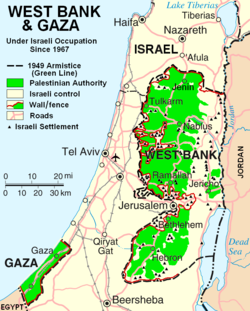Warfare Accountability: Impact Of Transnational Politics – Analysis
By RSIS
War is conducted in an environment in which activists regularly launch public advocacy campaigns of naming and shaming in order to pressure the belligerents. Yet, the targeted actors can challenge the facts and interpretations and turn the table on them. This may, however, prove politically costly to the belligerents in the longer term.
By Pascal Vennesson and Nikolas Rajkovic
THE INTENSIFICATION of military hostilities between Israel, Hamas and other Palestinian groups in the second half of November 2012, culminating with operation “Pillar of Defence”, is a powerful reminder that warfare is not conducted in a vacuum. It is affected by transnational human rights networks that span the globe and have become more numerous and influential since the 1970s.

In the name of humanitarian norms, these activists are involved in public advocacy campaigns of naming and shaming designed to pressure their targets into complying with human rights obligations. Already during the Second Lebanon War (2006) and Operation Cast Lead (2008-2009), Human Rights Watch and other transnational groups devoted significant resources to make the Israel Defence Forces accountable under International Humanitarian Law.
Pushback by targeted states
What emerges from our study of these struggles between Human Rights Watch and the Israel Defence Forces (IDF) is a more varied picture of the politics of transnational advocacy than conventional theorising depicts. To be sure, the conventional wisdom is correct that transnational activists demonstrate the power of discourse in international politics and, in some circumstances, sequence of naming, shaming and compliance can be set in motion.
However, this view overlooks the potential of targeted states to discursively ‘push back’ their transnational activist accusers. Targeted states increasingly develop their own capacities and techniques which challenge the facts and interpretations offered by transnational advocates. By so doing, they ‘turn the table’ and expand the scope of accountability to include the conduct of transnational advocates themselves.
Therefore, scrutiny by transnational advocates does not necessarily lead to compliance. Rather, it often initiates a coercive language game where various non-state and state actors employ competing tactics of framing, rhetoric and legal argumentation to advance favourable characterisations of events ‘on the ground’.
Campaigns and counter-campaigns
During the Lebanon and Gaza wars, Human Right Watch assailed the validity of employed military force and attempted to restrain the scope and depth of military action by articulating vivid and incriminatory accusations. In response, Israeli authorities and pro-Israel advocates took material and discursive measures intended to refute and/or discredit the allegations raised by Human Rights Watch. What is more, this process of adaptation and discursive intervention intensified over time as allegations against the IDF became more severe.
Advocacy by Human Rights Watch and other transnational groups did have an impact on the IDF. Israeli officials and third-party sympathisers were compelled to respond to, and counteract, allegations by Human Rights Watch. Such contestation and manoeuvring morphed into a legalistic contest, where the actors involved vicariously litigated the character of combat actions through a public barrage of legal interpretations, propagated by potentially multiple and competing groups of legal ‘experts’.
The series of public rebuttals and organised counter-campaigns that ensued reflected the political significance of the advocacy inflicted by Human Rights Watch; however, the reaction also had reputational and thus political consequences for Human Rights Watch in return.
Two policy implications
The contested character of relations between HRW and the IDF during the Lebanon and the Gaza wars manifested not a linear trajectory of naming, shaming and compliance but rather a discursive struggle where the IDF, Israeli authorities and third-party groups sought to expand the playing field of transnational accountability to include scrutiny of human rights NGOs as well. The IDF and its sympathisers attempted to question the label of neutral observer which human rights NGOs relied upon, by challenging the popular belief that such monitoring was beyond error, criticism or ideological commitments.
Successful or not, the fact that such efforts were visible gave insight into the potential resilience of a targeted state and the discursive contest which emerges in the practice of transnational advocacy during wartime. The outcome was what we refer to as a ‘discursive quagmire’: both non-state and state actors proved adept at techniques of advocacy and no actor was able to command an outright characterisation of events.
These results lead to two main policy implications. Firstly, transnational advocacy is here to stay and can have a real influence on the conduct of war. However, activists and scholars alike would benefit from further examination of the specific interactions between transnational advocates and their targeted actors, including the unintended consequences of the ways in which they characterise the issues at hand. Secondly, targeted states can push back and successfully reject compliance with the demands of transnational activists.
However, they can find that it is less and less effective to fall back on a mostly technical and legal response: their counter-claims may be legally correct, but prove politically ineffective and even costly in the longer term.
Pascal Vennesson is Professor at the S. Rajaratnam School of International Studies (RSIS), Nanyang Technological University and Nikolas Rajkovic is a Lecturer at the University of Kent Law School and currently a Jean Monnet Fellow in Global Governance at the Robert Schuman Centre for Advanced Studies, European University Institute. This is an excerpt of their joint article in the December 2012 issue of International Relations.
